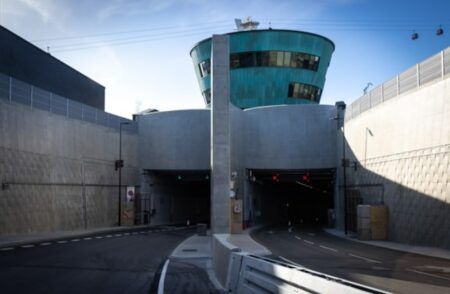According to the latest research conducted by the UK’s Transport Systems Catapult (TSC), on behalf of the Department for Transport (DfT), Urban Consolidation Centers (UCCs) can reduce traffic congestion and improve air quality in towns and cities.
UCCs are logistics facilities situated close to the urban area that it serves. Goods destined for this area are dropped off at the center and consolidated onto suitable commercial vehicles for delivery to their final destination.
The TSC’s study for the DfT has shown that UCCs can play an important role in helping local authorities to meet emission targets and reduce congestion. As a result of its research, the Catapult has now developed an economic assessment tool that estimates the cost and benefits of moving toward a logistics consolidation model.
The TSC applied its new UCC evaluation tool to the University Hospital Southampton Foundation Trust (UHS) as part of a pilot project case study. Data showed that by moving toward consolidation and using the UCC operated by Meachers Global Logistics in Southampton, deliveries to the hospital could be reduced from 867 a week to 25 a week, using seasonally-adjusted figures based on ALPR (automatic license plate recognition) data. This brings benefits in terms of efficiency savings for the hospital as well as wider benefits to the community, such as reducing congestion, road casualties, and improving air quality levels.
Air quality is of particular importance in Southampton, as it is one of the UK cities and towns required by government to take action to bring nitrogen dioxide concentrations within legal limits in the shortest possible time. The study suggests that UCCs can help towns and cities like Southampton meet their air quality obligations through the reduction of goods vehicle miles in urban areas.
Financial viability has been the main barrier to successful adoption, with UCCs often requiring a public sector subsidy to maintain operations. However, by creating an economic model that shows the financial value of the benefits for all stakeholders, the TSC was able to show that the benefits can significantly outweigh the costs.
“The uptake of Urban Consolidation Centers has traditionally been low in the UK, due to the costs of establishing and running an extra step in the logistics supply chain. However, as towns and cities face increasing congestion alongside the need to reduce harmful emissions and other local environmental impacts, ‘outside the box’ thinking like this needs to be reconsidered,” explained Andrew Traill, the TSC’s principal technologist for freight and logistics.
“Ultimately, this model can lead to cleaner towns and cities and more efficient deliveries, while producing a much-needed relief to road systems which are struggling with traffic volumes.”




